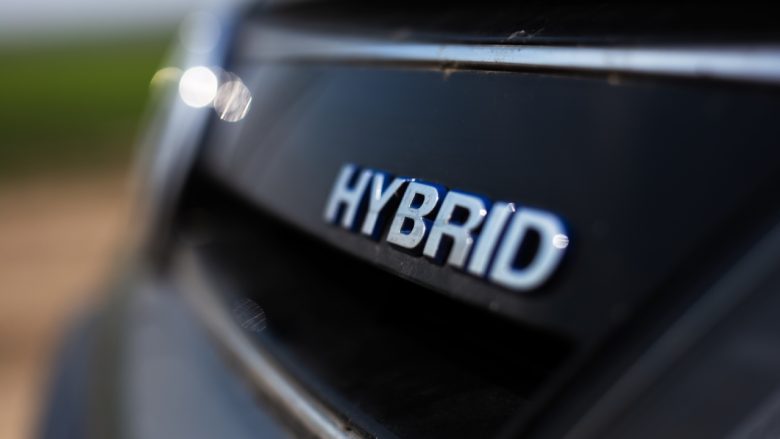When it comes to insurance, hybrid car insurance is different from regular petrol car insurance. Hybrid vehicles, which combine the advantages of gasoline engines and electric motors, can have an impact on insurance dynamics due to their high-tech components, high maintenance costs, and special hazards. This article guides navigating the hybrid car insurance market so owners can get the best coverage for their specific needs.
1. Understand the Cost Factors of Hybrid Insurance
Understanding the variables that can affect the cost of insuring a hybrid car is the first step in finding the best coverage for it. Hybrid cars are generally more expensive to insure than regular cars. This is partly because they contain more complex systems and more expensive components that, if damaged, can be more expensive to replace or repair. Overall, the cars themselves are worth more, especially the latest versions with the latest technology. The risk profile of hybrid drivers, who are typically more cautious, may also have an impact on insurance costs.
2. Check the Insurance Company
When looking for the best insurance for your hybrid car, it is crucial to compare quotes from different insurance companies. Different insurance companies handle hybrid insurance in different ways. While some may focus on higher parts prices and possible repairs, others may offer a higher price for hybrids because of their safety features and lower risk of accidents at high speeds. Hybrid car owners can get the best price and insurance options for their vehicles by comparing quotes from many insurance companies.
3. Evaluate Available Coverage
Hybrid vehicle owners should carefully consider their insurance alternatives to ensure complete protection. Liability, collision, and comprehensive coverage are standard coverage options. However, due to the special nature of hybrid vehicles, it may be beneficial to consider additional policies for uninsured motorists and personal injury protection. Additionally, it’s a good idea to investigate specific coverage for hybrid batteries, a critical component that can be very expensive to repair.
4. Look for Hybrid-specific Discounts
Owners of hybrid cars can get special discounts from many insurance companies. These discounts can be offered to owners of hybrid vehicles to encourage environmentally friendly driving behavior. Other potential savings include low-mileage driver fees, which many hybrid owners qualify for if they use the vehicle primarily for short trips. By taking advantage of loyalty, discounts for good drivers, and discounts for multiple cars, insurance prices can be further reduced.
5. Understand How Security Features Impact You
The advanced safety measures often found in hybrid vehicles can have a significant impact on insurance premiums. In addition to protecting the car and its occupants, technology such as advanced airbag systems, automatic emergency braking, and robust safety features reduce the chance of expensive claims. Disclosing all the safety features installed on your car to your insurance company can help lower your premiums.
6. Maintain a Clean Driving Record
The driving record and behavior of the insured have a significant impact on insurance rates. Maintaining a spotless driving record is crucial to getting cheaper insurance quotes. Drivers of hybrid vehicles must ensure they drive reasonably and safely to avoid collisions and traffic violations, which can increase insurance premiums. Regularly reviewing driving records and making the necessary corrections can also help with insurance premium management.
7. Review and Update Insurance Policies Regularly
Your insurance coverage must adapt to your changing circumstances. Hybrid vehicle owners will benefit from reviewing and updating their insurance policies annually to ensure that cover remains appropriate for their needs and takes into account any new regulations, improvements to the vehicle, or changes in driving style. It’s also an opportunity to revise policies based on new vehicle value assessments, which could be crucial as some hybrid models can deteriorate at a different rate than regular cars.
Conclusion
When looking for the best hybrid car insurance, it is important to carefully analyze the car’s features, available insurance alternatives, and the owner’s needs. Hybrid car drivers can get comprehensive coverage that provides adequate protection without breaking their budget by understanding how insurance companies charge for different types of vehicles, comparing quotes from multiple companies, and taking advantage of any discounts and coverage options. As technology and personal circumstances change, coverage will remain adequate through regular updates and informed decision-making.
FAQs
1. What insurance should drivers of hybrid cars have?
Hybrid vehicle owners should consider basic insurance, including liability, collision, and comprehensive coverage. Additionally, given the high cost of hybrid components, especially the battery system, it may be wise to check if there is insurance that provides specific coverage for these expensive components.
2. Which insurance companies offer discounts on hybrid cars?
Due to their lower likelihood of being involved in high-speed collisions and the prevalence of drivers who use safer driving practices, some insurance companies even provide discounts for hybrid vehicles. Rewards for car safety features, low mileage, supplier loyalty, or having many policies may also qualify for discounts.
3. How do you find the most affordable hybrid car insurance?
It is recommended that you view and compare quotes from multiple insurance companies to discover the best rates for hybrid car insurance. Take into account your driving style, hybrid model, and any relevant discounts. Tools for comparing insurance quotes online can be very useful here.
4. How do the safety features of hybrid vehicles affect insurance costs?
Yes, the advanced safety features often found in hybrid vehicles can have a positive impact on insurance prices. Features such as advanced airbags, stability control, and anti-lock braking systems can minimize insurance costs by reducing the chance of accidents and injuries.
5. Does a hybrid’s battery life affect insurance costs?
The age of the battery itself typically does not directly impact insurance rates, but the potentially high cost of replacing a hybrid car’s battery can impact the vehicle’s overall insurance costs. Because batteries are expensive, it is important to make sure your insurance covers battery replacement.
6. How often should I check my hybrid car insurance?
It’s a smart idea to review your hybrid car insurance policy once a year, or whenever there are significant changes in your driving habits, the condition of your car, or a family member’s driving history. Doing this will ensure that your coverage is up to date and that any changes that may affect your insurance needs or costs are taken into account.



